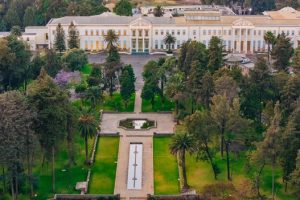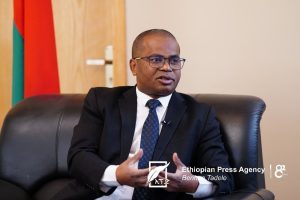
As one of the ancient countries in the world, Ethiopia has deeply-rooted cultural and folklore blessings that date back to the Pre-Aksumite and Aksumite Kingdoms. Its cultural heritages have paramount importance in enhancing tourism sector. Cultural heritages like the Gada system, which is inscribed in UNESCO intangible heritage list, are among the innumerable blessing of the nation. Other cultural tourist attractions include landscapes, visual and performing arts, values, costumes, traditions, events and other ways of creative and intercultural exchange processes. The aforementioned cultural attractions have vital role in improving the tourism potential of the country. However, cultural tourism has been at its infantile stage of development due to many challenges. Despite the setbacks, the government has been striving to exploit the untapped sector so as to contribute for the economic development of the nation. Worku Mengesha, Communication Directorate Director Culture and Tourism Bureau at Addis Ababa City Administration says that the number of tourists being attracted by cultural heritages is increasing from time to time, though many activities remain to be undertaken. ‘‘Ethiopia is blessed by cultural tourist attractions. There are plentiful cultural holidays, cultural foods and beverages, drama, performing arts and cultural materials in Ethiopia. But these fabulous blessings have not been promoted to lure more tourists,’’ he said. Adding: ‘‘ Tourists express their amusement of cultural tourist attractions like Mesqel, Timket, Ed-Alfetir, Irreechaa, Fiche-Chambaalla and customs and traditions of Nations, Nationalities and Peoples of Ethiopia. The verbal advertisement they undertake to their families and friends when they return back to their country has played a great role in promoting our attractions. Many tourists want to visit Ethiopia in anticipated manner looking at photographs and videos about Ethiopia, according to him. He added that since Addis Ababa is home of nations and nationalities as well as diplomatic capital of Africa, various cultural activities is being practiced. Hence, tourists would get ample opportunities to get little Ethiopia in it. ‘‘The museums which are found in Addis Ababa house many cultural artifacts. They are being kept properly so as to transfer them to the next generation. Besides, they are being viewed by people who come for conference. This should be encouraged for attracting more tourists as well,’’ he insisted. Addis Ababa University, Sociology and Social Anthropology, Lecturer Tesfalem Seyoum for his part said the performing arts, proverbs, literary works and paintings must be preserved and promoted for tourism and research purposes. ‘‘Ethiopia is a nation with a mosaic of culture. It has diversified nations and nationalities with different language, culture and way of life. Their dancing style, wedding ceremony, funeral service, proverbs, literature, paintings, dressing, foods and drinks have huge importance in developing cultural tourism,’’ he said. Adding ‘‘as researches show, foreign tourists want to know everything. They want to explore the cultural aspects of different societies. However, there is misconception in Ethiopia that the tourists only want to see museums, monuments, natural attractions and festivals. This perception should be changed. He further explained that apart from generating foreign currency, cultural tourism would also have a paramount role in consolidating people-to-people relations within a country and beyond. The activities being undertaken by schools, governmental and non-governmental organizations to know their country should be encouraged since it could pave a way for internal tourism development. As far as conservation of cultural heritages is concerned, many irreplaceable heritages are on the brink of extinction. Some of them are already no longer in use by their tribes. Tesfalem urges the Ministry of Culture and Tourism and other pertinent stakeholders to work for their revival. ‘‘Our diversity is our beauty. However, there is a fear of losing our beauty since languages and cultures of certain tribes are already dying. This would be taken as a huge loss for the country. Hence, everyone who is concerned of his/her cultural heritages has to stand to rescue those on the brink of extinction,’’ he stated. Regarding expanding infrastructures, Ethiopia has lack of basic infrastructural developments like roads, accommodation, water and electricity. Having understood the importance of such infrastructures, the government should endeavor to build them. It would be highly difficult to promote and develop cultural tourism without basic infrastructural facilities. Thus, if we want to utilize our untapped cultural resources, we should use them wisely thorough preserving, promoting and developing them. If so, it would be vital sector which could create job opportunities for millions of citizens and become source of earning of foreign currency.
The Ethiopian Herald April 5/2020
BY TSEGAY HAGOS





